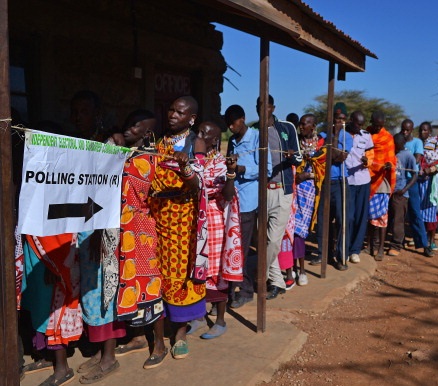Kenya’s Navigation Score Card is Great But…
 |
| Kenyans line up in a polling station |
The last five decades of electoral competition have elevated ethnicity as a strategic galvanizing factor in Kenya’s socio political economy. Self-appointed ethnic spokespersons have driven Kenya towards violence. The politics of the day often hold individual choice captive, rendering the individual inactive like a company that cannot issue shares in order to obtain new investment. The one-man-one vote is driven to anonymity.
Ethnic voting blocs offer analysts a good excuse to tinker on the edges of Kenya’s national challenges. Those powering Kenya’s foreign policy navigational tools hopefully realize that the country’s greatest challenge is its geostrategic position at the gateway of competing international interests. National political competition can therefore not be left to whoever wields the biggest wallet. A proactive national consensus has to guide political contests so as not to turn Kenya into an ugly play ground of international interests.
Political contestants and their strategists need to factor in the “external voter.” Why would an “external voter” be interested in Kenya’s national politics? From an export perspective to external markets, the most visible conversation is centered on oil pipelines and railway lines that cut across several national borders. Kenya is recognized as a vital hub that producer countries use as a landing pad to distribute products to inland markets. The country offers a semblance of stability in comparison to her regional counterparts such as Somalia, South Sudan, Burundi and Democratic Republic of Congo. Kenya allows access to the Indian Ocean that drives close to 70% of global trade platform.
External voters may care less how the country plays its ethnic arithmetic. They are like external shocks to Kenya’s internal ecosystem. Like an earthquake they can undo all that ordinary voters wish for through technology, money, sense of judgment and choice.
Kenyan voters can borrow from the mindset of architects who reside in regions prone to earthquakes. The architects are forced to work closely with earthquake engineers to ensure designs that withstand earthquake shocks. Kenya’s political actors have to factor in the country’s position at the convergence of diverse international interests even as they erect billboards for 2017.
By James Shikwati
Director, Inter Region Economic Network.
